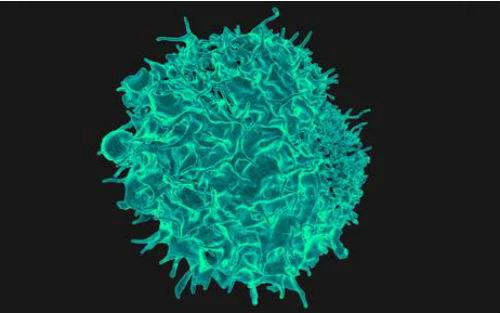Studies have found that FRCs regulate T cell function through four signaling pathways

Studies have found that FRCs regulate T cell function through four signaling pathways.

Copyright © iCell Bioscience Inc, Shanghai 2018-2019
The microenvironment of the lymphoid organ can help the body maintain healthy immune function through structural and molecular support. Although studies in mice have found that fibroblast reticulocytes (FRCs) in mice create an essential T cell support structure in lymph nodes, little is known about the function of human FRCs.
Recently, scientists from institutions such as Birmingham University and Genentech found that human FRCs use a combination of four mechanisms to create a regulatory immune checkpoint microenvironment during peripheral T cell activation. Human tonsil and lymph node-derived FRCs can limit the activation of naive T cells as well as unactivated T cells, causing them to differentiate toward the phenotype of central memory T cells.

FRCs unilaterally create an immunosuppressive environment through indoleamine-2,3-dioxygenase, adenosine 2A receptor, prostaglandin E2, and transforming growth factor receptor, without the need for T cell feedback. Since each signaling pathway can be inhibited by drugs, cocktail therapy targeting these four mechanisms of inhibitors can completely reverse the immunosuppressive effects of FRCs.
T cells are also not permanently inhibited by FRCs, and experiments using chimeric antigen receptor T cell therapy have shown that these T cells still maintain effector function in the absence of FRCs. Since mice are not suitable for studying this problem, the researchers developed an in situ test based on human tissue. The researchers found that using standard methods to stimulate T cells in fresh tonsil sections did not proliferate, but T cells only proliferated under the action of the above inhibitors.
Collectively, the researchers found that FRCs in humans regulate the function of T cells in peripheral lymphoid organs to respond to activation signals through four signaling pathways. Although these T cells are inhibited, they can be used for CAR T therapy. This study demonstrates that methods that inhibit these four signaling pathways by drug-targeting FRCs (alone or in combination) can enhance the response of naive T cells to infection and cancer.
 Loading ....
Loading ....
